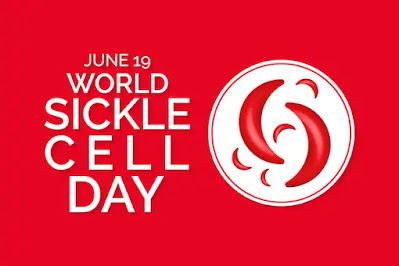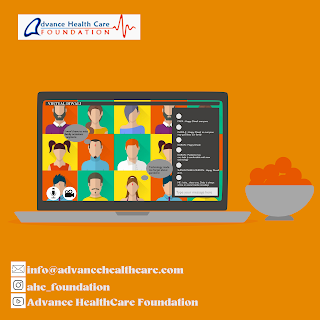World Sickle Cell Day
World Sickle Cell Day: Awareness, Prevention and Cure
“Care is absolute. Prevention is the
ideal.”
~Christopher Howson
World Sickle Cell Awareness Day is celebrated annually on the 19th of June, to spread greater awareness and knowledge regarding this lesser-known disease, Sickle cell disease (SCD) refers to a group of inherited red blood cell disorders. Healthy red blood cells are round in shape and contain haemoglobin, a protein that carries oxygen to all parts of the body. However, in SCD, abnormal levels of haemoglobin result in red blood cells becoming hard and sticky and hence appearing similar to a C-shaped farm tool called ‘Sickle’.
Sickle cells can be characterized as being
stuck extremely close to each other, and hence blocking the smooth flow of
blood, consequently preventing oxygen from reaching all parts of the body.
Alternatively, these cells may die early and lead to shortage of healthy RBCs
in the body. Experiencing this disease can be quite painful and challenging for
the patients as well as their families. Some of the common symptoms that may
reoccur include pain, swelling of hands and feet, anemia, frequent infections,
vision problems, etc. Furthermore, sickle cells can even cause delayed growth
or puberty. This is because sickle cells cause a dearth in RBCs, it could
potentially result in a shortage of adequate nutrients in the body and thus can
slow proper growth and development.
To ensure early detection and prevention,
it is imperative to seek immediate medical care as soon as warning signals set
in. Some of the initial red flags include dizziness, fatigue, sharp
pain in joints, inflamed fingers or toes, yellow skin, paleness and shortness
of breath. Furthermore, in extreme cases Sickle Cell Disease can lead to
complications such as strokes resulting in regular occurrences of seizures,
numbness, speech difficulties, etc. Sickle cells can even become an underlying
risk factor for developing gallstones, pulmonary hypertension, leg ulcers or
severe organ damage.
As we celebrate World Sickle Cell Day on
19th June, 2022, it is important for us to give our blood samples from our
veins and get them checked in a laboratory where it’s checked for the sickle
cell form of hemoglobin. You should definitely visit a genetic counselor, if
anybody in your family has had this disorder before because sickle cell anemia
can be transferred genetically and can cause problems for all the generations
to come. That’s why as it’s said ‘Prevention is better than cure’. Since there
is no proper cure for SCD, an early detection of this disorder will increase
the effectiveness of treatment measures.
One more interesting thing about this
disorder is that it can be detected in unborn babies by testing their blood
when they are in their mother’s womb itself. This can help parents to decide
whether they want their kid to be born with such a disorder or not. If SCD is
found in children, they are treated with penicillin till 5 years of age to
avoid infections like pneumonia. In children the risk of infection spreading at
a higher speed is possible and they can also be very severe like hepatitis B,
meningitis etc. If sickle cell anemia is found in adults, they can also take
penicillin to stop infection from spreading and control pain caused by
symptoms. During the COVID-19 pandemic it was important for people with this
disorder to take extra precautions and care of themselves because this already
stops blood from moving smoothly and the coronavirus affected the lungs.
Therefore it was important to stay isolated and get vaccinated.
Some surgical procedures can also be used
like blood transfusion or stem cell transplant to get rid of Sickle Cell Anemia
but this also include risk of death due to bone marrow transplant in children
and an excess of iron in your body can damage important organs in
your body like heart, liver etc. and for treating them you need to go through
regular transfusions. There are some drugs available for reducing body ache
like Hydroxyurea, L - glutamine oral powder, Crizanlizumab, Voxelotor, etc.
Sickle cell disease is a severe disorder
and it is our duty as well as responsibility to take maximum precaution to
avoid this disorder from spreading further because we don’t still have an
ultimate solution to this disease. The most effective tool for prevention is
the spread of proper knowledge and awareness with regard to the symptoms,
causes and preventive measures.
This Sickle Cell Awareness day, boost your knowledge about this severe disease and empower and educate others around you. Because as rightly said, ‘An ounce of prevention is better than a pound of cure.’
(By Sanya and Twadanya, Volunteers, Editorial Department, Adolescence Development Club)



Wow! Very informative.
ReplyDelete